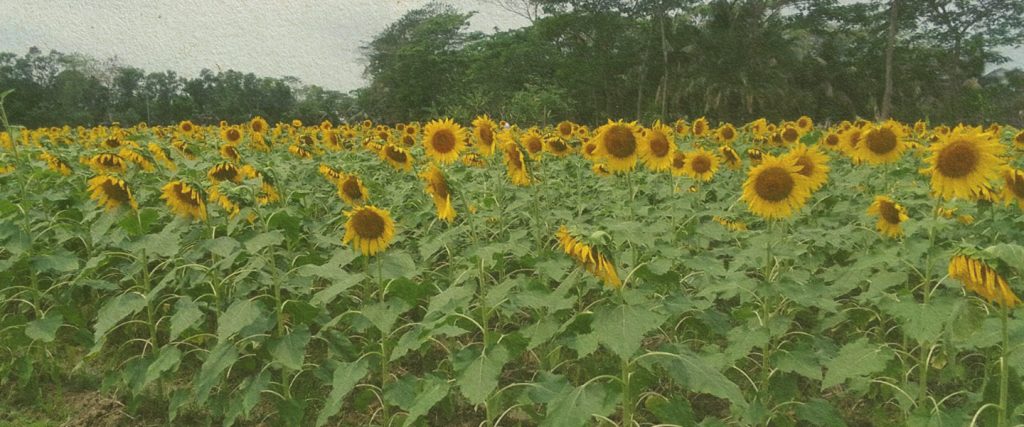Extreme soil salinity is rendering thousands of hectares of farmland in coastal Bangladesh barren for months of every year. This slow-onset impact of the climate crisis is forcing millions of farmers to abandon a centuries-old – and one of the most basic – livelihoods. But not all is lost. Ashim Shikari is a farmer adapting to the climate crisis through sunflowers.
We have a new name for salt. We call it fire dust.
Why? Let me tell you.
I farm and live by the coast in Patuakhali, in a remote corner of southwest Bangladesh. Here, we used to have all six seasons, and they would play out the same, year after year, in all their glory – Grishmo (Summer), Borsha (Monsoon), Shorod (Autumn), Hemonto (Late Autumn), Sheet (Winter) and Boshonto (Spring).
Now we have just three seasons – a summer that sucks the life out of the land, a monsoon that brings punishing cyclones and floods and a dry winter that kills everything – even mung beans – the hardiest of crops.
Then there is salt, the taste we all loved – but have grown to hate – which is here for all the seasons now. It comes in with extreme tides, with cyclones, with floods – an unwelcome visitor who never leaves.
Cyclones torment our lives for just a couple of days, but what people who don’t live with them don’t see is that they leave behind this salt brine on our fields. That stagnant, salty water stays for months. When it eventually evaporates, or seeps into the ground, it leaves a layer of flaky white salt that covers the whole ground like a tattered white bed-sheet.
Nothing grows on salt – and I know nothing other than growing crops.
We call it – salt – fire dust, because it burns the soil like fire.
When I tried planting rice in this salty soil, my rice shoots turned yellow and dried up. I tried my luck with watermelons, but they’re thirsty, and irrigation costs a lot of money – BDT 3,300 taka (USD 30) per acre, to be exact.

